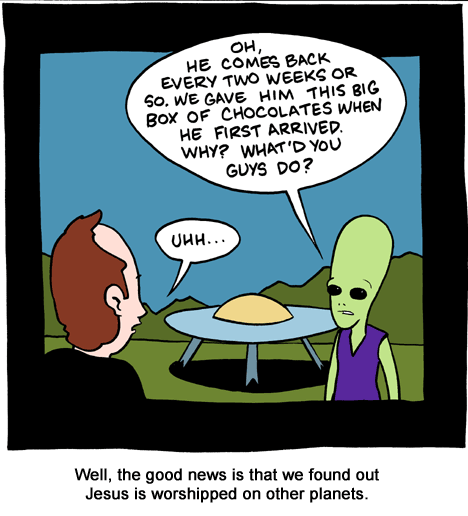Psalm 118:1-2, 19-29
The Liturgy of the Word
Isaiah 50:4-9a
Psalm 31:9-16
Philippians 2:5-11
Luke 22:14-23:56 or Luke 23:1-49
Remember way back on the first Sunday in Lent, I wrote this post about how God lets really horrible things happen to people all the time? And I mentioned that I didn't think a loving God would devise a plan that ripped children from the arms of their mothers, or forced parents to watch their children die. I still don't think that. Which makes a lot of our doctrine about the crucifixion a little problematic, to say the least.
Christianity has traditionally understood the cross as the way to salvation for sinners. If you spent any time in fundamentalist circles during your life, then you've seen the diagram where human sinners are on one side of a deep chasm, God is on the other side, and the cross is suspended like a bridge in between. Usually there are Bible verses printed for each part of the story, and these pages were printed up in pocket sized tracts so that you could always have one handy if you needed to share the gospel.
Here's a good example:
 |
| Bridge to Life Illustration from Navigators website |
But what if Jesus' suffering wasn't necessary? What if the crucifixion was never part of the plan? I said before that I didn't think God was the kind of douchebag God who would purposely force a mother to watch her child die in her arms, and I don't think his own son is any exception. You can tell from Jesus' behavior in the gospel lesson that he's a little wigged out. He's repeating himself about the bread and wine. He tells his disciples to get some swords and money even though he's never placed any value on such things before. I mean, let's be honest, he's acting a little bit drunk and a whole lot crazy.
 |
| From Saturday Morning Breakfast Cereal |
And I think he's acting crazy because he's engaged in a mighty struggle. Is he going to be the Messiah that was part of the plan--the one who speaks truth to power and hangs with the powerless? Is he willing to die for that vision? Or are the people throwing the palm fronds the ones who are right? Maybe the Messiah needs to be a military ruler who gathers the chosen people together to rise up against the powerful oppressors and usher in the kingdom of God by force? It certainly seems like he's toying with that possibility in Luke's gospel.
You want to talk about torture? What do you suppose it's like to throw your whole self into a new and radical vision for the world, one that includes people who were formerly excluded, one that knocks everything everyone knows about power and worthiness on its end, and then, when you know people are coming to kill you, to suddenly see that you may have gotten it all wrong? That you've given your whole life to a vision that's going to come to nothing. That you've failed the universe. In that state, I'm not sure he'd even notice when the nails went in.
But then, he goes to Gethsemane, and something happens there. Jesus reclaims his true vision. He lets go of orchestrating own survival and gives himself back over to the big picture. He surrenders himself and says, "Not my will, but yours be done." As far as I'm concerned, this is the turning point of the story. Everything else is denoument.
Because despite what's been implied from pulpits and Sunday school flyers and televangelists' broadcasts for generations, Jesus was not born to die. Jesus was born to live, and to live so purely and abundantly that we who could ignore the world's distractions would see in his life a way to find real lives of our own. Lives of connection and inclusion and compassion. Lives of reclaiming a vision of what our lives are really for.
In my very first post introducing this blog, I rather flippantly said that Lent was all about guilt. I was wrong. Lent is about reunion, revision and recommitment. Lent is meant to be our time in the garden of Gethsemane, which gives us the vision to do what we are meant to do, regardless of how much of a beating we take for it. Because this part of the Good News is called the passion for a reason.
No comments:
Post a Comment